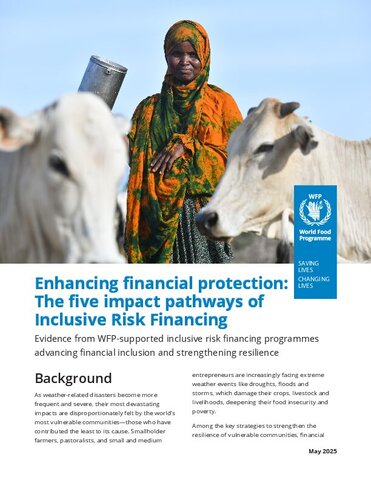
As weather-related disasters become more frequent and severe, their most devastating impacts are disproportionately felt by the world’s most vulnerable communities—those who have contributed the least to its cause. Financial services can play a vital role in managing these weather-related risks and closing the crisis protection gap that these communities face. Over the past decade, WFP has expanded access to inclusive risk financing solutions for over 10 million people as part of a comprehensive risk management approach, initially rooted in the R4 Rural Resilience Initiative (R4). R4 has now evolved into a streamlined Inclusive Risk Financing (IRF) approach, designed to strengthen resilient food value chains. This factsheet explores years of evidence highlighting the value of insurance and financial services in protecting food security and livelihoods, fostering productive investments, empowering women, and enhancing preparedness for weather-related shocks.
